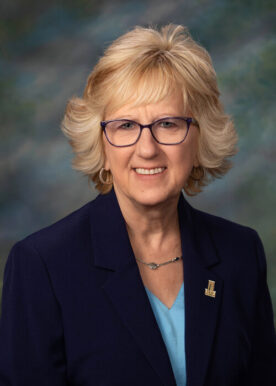Summary:
- OpenAI and Foxconn announce U.S. partnership to co-develop AI data center hardware
- Foxconn to build cabling, networking and power systems in U.S. factories
- Collaboration part of OpenAI’s $1.4 trillion AI infrastructure expansion
- Deal aims to bolster U.S. leadership and keep AI innovation local
TAIPEI, Taiwan (AP) — OpenAI and Taiwan electronics giant Foxconn have agreed to a partnership to design and manufacture key equipment for artificial intelligence data centers in the U.S. as part of ambitious plans to fortify American AI infrastructure.
Foxconn, which makes AI servers for Nvidia and assembles Apple products including the iPhone, will be co-designing and developing AI data center racks with OpenAI under the agreement, the companies said in separate statements on Thursday and Friday.
The products Foxconn will manufacture in its U.S. facilities include cabling, networking and power systems for AI data centers, the companies said. OpenAI will have “early access” to evaluate and potentially to purchase them.
Foxconn has factories in the U.S., including in Wisconsin, Ohio and Texas. The initial agreement does not include financial obligations or purchase commitments, the statements said.
The Taiwan contract manufacturer, formally known as Hon Hai Precision Industry Co., has been moving to diversify its business, developing electric vehicles and acquiring other electronics companies to build out its product offerings.
A sleek Model A EV made by the group’s automaking affiliate Foxtron was on display at Friday’s event.
“This year, Model A. ‘A’,’ for affordable,” said Jun Seki, chief strategy officer for Foxconn’s EV business.
The tie-up with OpenAI can also help Taiwan, a self-governed island claimed by China, to build up its own computing resources, said Alexis Bjorlin, a Nvidia vice president.
“This allows Taiwan’s domain knowledge and key technology data to remain local and ensure data security,” she said.
“This partnership is a step toward ensuring the core technologies of the AI era are built here,” Sam Altman, CEO of San Francisco-based OpenAI, said in the statement. “We believe this work will strengthen U.S. leadership and help ensure the benefits of AI are widely shared.”
OpenAI has committed $1.4 trillion to building AI infrastructure. It recently entered into multi-billion partnerships with Nvidia and AMD to expand the extensive computing power needed to support its AI models and services. It is also partnering with US chipmaker Broadcom in designing and making its own AI chips.
But its massive spending plans have worried investors, raising questions over its ability to recoup its investments and remain profitable. Altman said this month that OpenAI, a startup founded in 2015 and maker of ChatGPT, is expected to reach more than $20 billion in annualized revenue this year, growing to “hundreds of billions by 2030.”
Foxconn’s Taiwan-listed share price has risen 25% so far this year, along with the surge in prices for many tech companies benefiting from the craze for AI.
The Taiwan company’s net profit in the July-September quarter rose 17% from a year earlier to just over 57.6 billion new Taiwan dollars ($1.8 billion), with revenue from its cloud and networking business, including AI servers, contributing the most business.
“We believe the importance of the AI industry is increasing significantly,” Liu said during Foxconn’s earnings call this month.
“I am very optimistic about the development of AI next year, and expect our cooperation with major clients and partners to become even closer,” said Liu.


